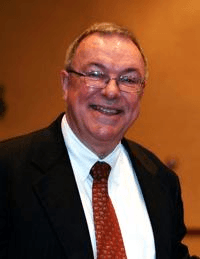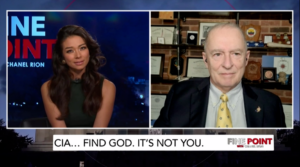TESSA’S TRIBUTE
“I’ve been wondering if in fact ideal platonic love isn’t just an intensely concentrated form of what inspires the best teachers.”
Edmund Marlowe
My sister Vicki Sue sent me an e-mail last week saying that Dr. Tessa Nelson-Humphries recently fell and fractured her hip shortly before her 97th birthday. She is in skilled nursing care in Las Cruces, New Mexico. I sent her a get-well card with this handwritten note:
“Tessa—
Best wishes …
To the greatest teacher a young boy could have …
Thanks for believing in me …
Get well soon.”
Jeemes Akers
However, the card falls far short of expressing my true feelings for one of the most wonderful teachers in my life—at any level. Dr. June Buchanan, our beloved “Miss June” at Alice Lloyd College, used to say: “A great teacher is one who takes her students to the moon and back every day.”
Tessa, an English literature teacher at Cumberland College, did that and more. If I close my eyes, I can still see her in front of the classroom: always dressed immaculately, her black hair pulled back tightly in a bun, a colorful scarf around her neck below a fashion model’s face, looking down at me over the top of her reading glasses. Typically, I would be sitting there in blue jeans, gym shoes, a faded cheap shirt, oily hair and pimples.
The distance between her polished mannerisms, grace and regal-like bearing and my shy backwardness and lack of self-confidence was the space between opposite poles of the universe.
But Tessa saw something in me I didn’t even see in myself.
She challenged me—at every class session—to stretch my mind.
To think critically about every passage of literary prose or poetry: to read between the lines and ferret out the author’s true meaning and feelings.
I admired everything about Tessa: her beautiful British accent (Vicki reminded me that she would talk exclusively during the first class session so we “could get used to her accent”), the way she smelled, and the intricate way her mind worked (she was a Mensa member). I came to covet every compliment she would direct my way. Indeed, as a young boy (I never really thought of myself as a young man even during the college years) I fell in love with Tessa in the deepest, most-platonic sense.
I still am.
That isn’t to say that Tessa couldn’t be straight-forward and tough. She had a low threshold of tolerance for fools. In the very first day of our English Literature class another student slouched in a desk chair two rows across from me. He had his feet on the chair in front of him. You could tell by his demeanor that he wasn’t all that thrilled to be there. Tessa walked in the classroom, immediately locked her eyes on him and said in her sternest voice: “young man, I can tell you right now you will not pass this course and so you might as well leave now.”
He got up, shot her an angry glance and huffed out of the room.
I never saw him again.
I can’t speak for any other students enrolled in the class, but that got my attention in a hurry.
In my mind, Tessa was also a lady of mystery. There was always the element of the unknown about her. Rumors floated around on campus about a dashing young husband in Argentina: a life of adventure, intrigue and a Camelot-type existence cut short by the young man’s tragic death by malaria. All this followed by the death of a baby. Others were certain she had won a beauty title in Britain before her marriage. I don’t know if any of that is true. In our collective dormitory wisdom, only such a personal disaster could explain her presence in the remote mountains of eastern Kentucky and her marriage to a rather stodgy local biology professor named Cecil Unthank.
We all knew her as Dr. Tessa Nelson-Unthank in those years.
I loved to see her smile: but I sensed she was never really happy in rural Kentucky. In her Kentucky solitude, she devoted herself to three loves: teaching her students, writing romantic novels, and her dogs.
Oh, how she loved her dogs!
I have one very close and personal Tessa dog story. Many years after the Cumberland College experience—after Chinese language school, my flying crew member time in Vietnam, graduate studies at TCU and my initial days at Alice Lloyd College—I returned to Williamsburg to visit Tessa. Imogene accompanied me. I wanted her to meet Tessa, the teacher whom I bragged endlessly about since we met. At that time, Tessa lived in a modest house with a long, blacktop lane guarded at one end by a heavy cattle-type steel gate. When we pulled up in the car, I heard Tessa’s dogs—one golden retriever and one German shepherd—galloping up the lane, barking loudly. Ima has a mortal fear of dogs so she stayed in the car. She yelled at me: “don’t get too close to the gate.”
I thought to myself, it’s a metal gate, the dogs are just barking to be protective. Like dogs are supposed to be.
I leaned against the gate, waiting for Tessa to come out of the house.
And call off the dogs.
Instead, the dogs got closer.
I thought to myself, these dogs better slow down or they are going to ram into the gate. I inched back slightly from the gate.
To me it was basic physics: strong, immovable metal gate versus yapping dog flesh.
Gate wins every time.
But dogs know nothing about physics.
About three feet from the gate, the German shepherd launched himself airborne, twisting his head so as to penetrate the space between the bars of the gate and—in the process—ripped away a large hunk of my leg flesh and destroyed my best pair of pants with one ferocious bite.
Fortunately for me, he let go.
Perhaps my scream of pain scared him.
My slacks turned crimson red.
Tessa called the dogs back, walked to the gate and apologized profusely.
“They’ve both had their rabies shots,” she assured me in her calmest and most convincing British brogue.
Needless to say, we cut short the visit and I spent the next several hours in the Corbin Hospital waiting for multiple stitches while doing my best job to convince the emergency room doctors that there was no need for me begin a series of rabies injections.
But most painful of all, I had to listen to Ima’s “I told you so” all the way to the hospital and back to the hotel.
Later, much wiser for the experience, we had a delightful tea and “biscuits” with Tessa at her charming house.
Ah yes, the memories.
I’d like to see Tessa one more time (with or without dogs) and tell her that everything I have accomplished—modest though it may be—I owe to her. In my years in the classroom, I tried to pattern my teaching after her and her insistence that I apply myself to critical and analytical thinking became a part of my mental DNA.
In an age where education has largely abandoned any notion of critical thinking, and when hi-tech titans, government parasites and leftist loonies seek to relegate my grandchildren to passive, mindless sheep, we need more teachers like Tessa than ever.
These days, my sister Vicki Sue (the oldest of my four younger sisters) does a much better job of keeping in touch with Tessa. Sis and I overlapped at Cumberland College and she also had Tessa in class. Tessa changed my sister’s life as well.
I haven’t mentioned much about Vicki Sue in these missives. She is musically talented (plays clarinet for a local band and the organ at her church), very artistic (she sewed a RC-135 “hog-nose” aircraft on a sweatshirt for me—one of my prized possessions), patriotic, a giving and loving aunt, a fearsome adversary in the kitchen hand-and-foot card wars, and helps take care of mom and dad. Sis makes the pilgrimage to Disney World on a yearly basis. They say a goldfish never gets bored in a fishbowl because each lap around the bowl is a new experience. The same can be said for Vicki Sue: she does exactly the same things at the theme park every year, and never gets tired of it.
I have tried to paint a positive picture of sis as a way to introduce the following story. I know all of you will feel sorry for her. You probably will think a whole lot less of me. But what’s new …
Our family couldn’t afford an extra car so if Vicki Sue and I wanted to return to Ohio from Cumberland College (a four-hour drive) we would help defray gas costs for a fellow student driver to provide us a lift back home. On one such occasion we were in a car with four other guys and sis. It was bitter cold outside and old Route 25 was curvy and hilly (this was before stretches of I-75 were finished). So, we were all huddled together and jostled against each other with every curve in the road.
I noticed that all the guys were on their best behavior because of sis.
For me it was the perfect storm situation: the ideal circumstances for a practical joke utilizing a strategically-placed fart. And I was just ornery enough—as we used to say in Kentucky—to pull it off.
It was a true SBD (silent but deadly). The kind that could peel the paint off walls. Or destroy the outermost nasal membrane.
I knew none of the guys could say anything because it may have been Vicki Sue. Vicki Sue was afraid it was one of the other guys, so she didn’t say anything. Of course, I didn’t say anything. So, we rode in silence as a pungent smell, worse than rotten eggs, filled the car. Nor did anybody dare roll down the window.
Perfect.
Nothing better than a well-timed, anonymous fart.
Vicki Sue—as sisters are inclined to do—suspected me all along.
For some reason she wouldn’t speak to me for days afterward.
One of these days, I may write an entirely fatuous and flatulent missive. I’d start with a quote from my favorite American poet laureate Rodney Dangerfield: “the definition of polite is farting in the bathtub when by yourself and saying ‘excuse me’ as the bubbles pop.”
What does all this have to do with this topic? You may be asking yourself.
Good question.
I think, curiously enough, Tessa would have enjoyed this story.
One of her more endearing and human qualities was to include in her lectures just the right amount—a pinch at the most—of earthy humor, a hint of naughty suggestiveness and subtle sexual innuendo to keep all of us guessing.
She was a master of the craft.
It was never overkill: always tastefully done.
Sigh.
I will always be in Tessa’s debt. The passage of time may take its toll on her physical beauty and mental acumen: but as long as I live (and think) her legacy will continue … and my love for her will endure.




